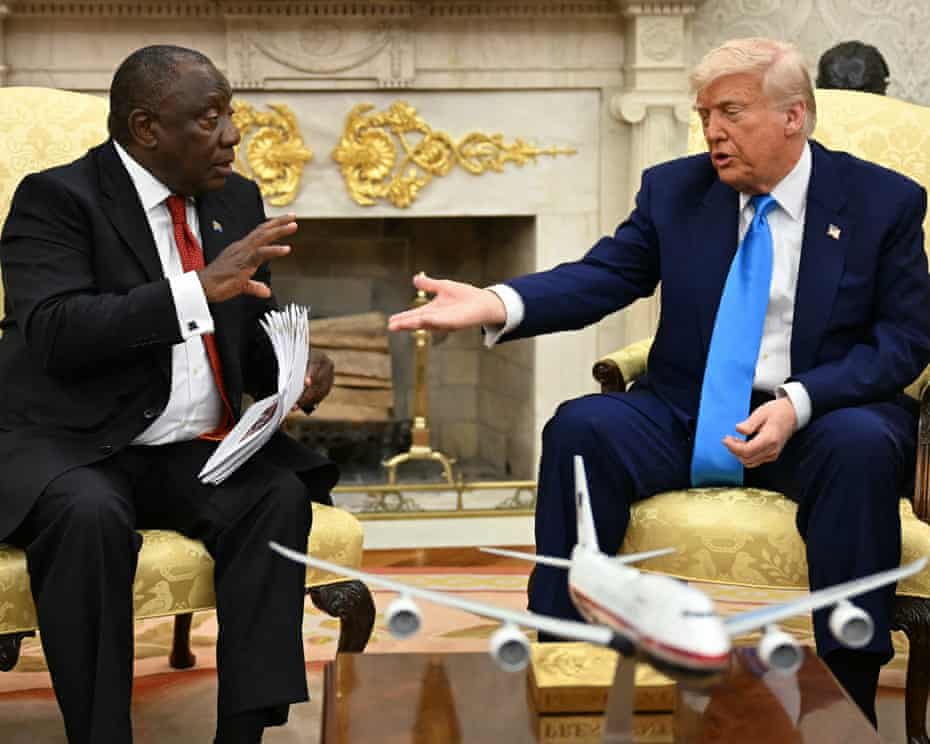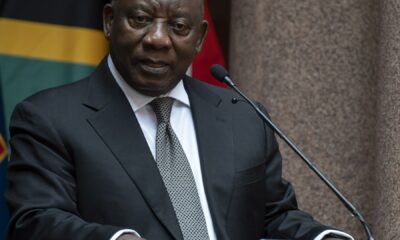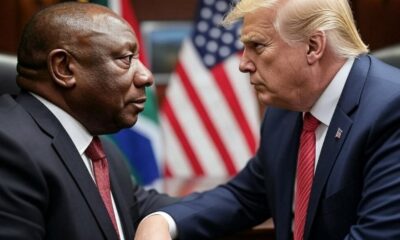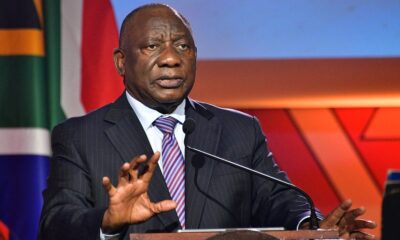News
Washington Turns Up the Heat: Second US Bill Targets ANC and South Africa’s Place in AGOA

Another shot fired in Washington as lawmakers press for sanctions on South Africa
For months, whispers of strained ties between Pretoria and Washington have grown louder. Now, those murmurs have landed on Capitol Hill, twice. On 15 September, US Senator John Kennedy tabled a bill in the Senate that could redefine America’s relationship with South Africa.
The proposal, known as the US-South Africa Bilateral Relations Review Act, is the second such piece of legislation this year. Earlier, Congressman Ronnie Jackson introduced a similar bill in the House of Representatives. Together, they signal a bipartisan push to punish South Africa’s ruling party, the ANC, for its foreign policy choices.
What the Senate bill says
The Kennedy bill goes further than the House version in some respects. It calls for:
-
A full review of US–South Africa relations.
-
A classified list of ANC and government officials who could face sanctions under the Global Magnitsky Act.
-
The termination of South Africa’s eligibility for AGOA, the trade pact that has underpinned thousands of local jobs.
The House bill, by contrast, was narrower, naming ANC factions and leaving AGOA on the table. The Senate’s text casts a wider net, treating the ANC as a whole and explicitly targeting South Africa’s trade privileges.
Why the US is tightening its stance
Senator Kennedy didn’t hold back when justifying his move. He accused the ANC government of “cosying up to Russia and China,” lashing out at Israel with “antisemitic attacks,” and staffing embassies with “radical officials” hostile to the US. He singled out former ambassador Ebrahim Rasool, who once called Donald Trump a “supremacist.”
Kennedy’s office also referenced South Africa’s joint naval drills with Russia and China, as well as the docking of a sanctioned Russian ship, flashpoints that Washington has long viewed as evidence of Pretoria’s drift into rival camps.
In his words: “This bill holds South Africa accountable and ensures our relationship is serving US national security, not undermining it.”
A bill with teeth or political theatre?
At first glance, the proposals might seem like grandstanding. As South African-born US commentator Joel Pollak told BizNews, many bills die quietly in committee. “For most legislators, it’s about being seen to take a stand,” he said.
But Pollak also issued a warning: once a bill appears in both the House and Senate, it’s no longer a vanity project. “This now looks like it’s moving toward an actual foreign policy step taken by the government of the United States,” he said.
The political climate makes this round different. With Republicans controlling both chambers of Congress, the ANC’s foreign policy decisions, from backing Hamas to maintaining ties with Moscow are coming under fire from both the right and the left. Democrats, too, are increasingly uneasy with Pretoria’s alignment.
The stakes for South Africa
For ordinary South Africans, the most immediate concern is AGOA, which gives local industries preferential access to US markets. From car manufacturing in the Eastern Cape to fruit exports in Limpopo, the act has been a lifeline. Losing it could cost jobs in a country already battling near-record unemployment.
Social media lit up after the news broke. Some South Africans shrugged it off, arguing that Washington has threatened AGOA before and blinked at the last minute. Others warned that this time is different, pointing to the two-track approach and the growing bipartisan frustration with Pretoria.
History repeating?
This isn’t the first time US lawmakers have aimed sanctions at South Africa. A 2016 Republican-led House bill tried and failed to gain traction in a Democrat-controlled Senate. But the landscape has shifted. Now, both chambers are in Republican hands, and Trump-era tariffs have already disrupted trade frameworks like AGOA.
Even so, the path to law remains long. Both houses must debate, amend, and vote on the bills before they land on the president’s desk. That process could stall, soften, or even collapse, but the pressure itself may be enough to shift the tone of US–SA relations.
A diplomatic reckoning
What’s clear is that South Africa’s foreign policy balancing act, maintaining ties with Russia and China while benefiting from US trade deals is under sharper scrutiny than ever.
The ANC may still insist it’s practicing “non-alignment,” but in Washington’s eyes, Pretoria has already picked a side. Whether or not the bills become law, the message is unmistakable: America’s patience is wearing thin.
{Source: BusinessTech}
Follow Joburg ETC on Facebook, Twitter , TikTok and Instagram
For more News in Johannesburg, visit joburgetc.com



























